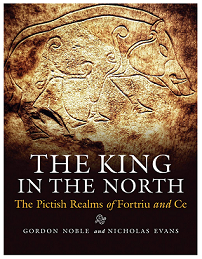The Picts of northern Scotland were a powerful political and cultural force in first millennium AD Britain. From early references in late Roman sources to the Picts attacking the Empire to their disappearance from records in the tenth century, they helped shape the history of early Britain. In spite of the region’s rich archaeological evidence, the mainland north of the Grampian Mountains has often been regarded as a backwater compared to southern Pictland. However, recent research has transformed our understanding of its importance, since the dominant Pictish territory and kingdom, Fortriu, has now been located around the Moray Firth.
A new book on the northern Picts published by a team from Archaeology in the School of Geosciences is just out. Drawing upon research undertaken as part of The Northern Picts Project, this rich but accessible study marshals a whole swathe of new data on the Picts of northern Scotland, introducing the historical sources and documenting the huge progress that has been made through recent archaeological discoveries. In recent years the evidence uncovered has been of unprecedented quantity and detail, revealing hitherto unknown elite settlements, a major silver hoard and challenging received views of the early Church. The volume also provides new chronological and interpretive frameworks for classic ‘problems’ of the Picts such as the dating and context of the iconic, but poorly understood, Pictish symbol system. Written for scholars and the general reader alike, the volume encapsulates a radically transformed view of the Picts and their contribution to the early medieval world of northwest Europe.
Order your copy now! All author proceeds goes to the project’s museum partners: The Tarbat Discovery Centre.


